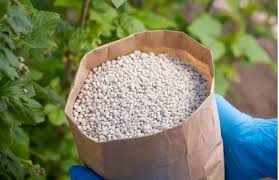
Nov . 04, 2024 01:44 Back to list
different types of npk fertilizer
Different Types of NPK Fertilizers
NPK fertilizers are essential for enhancing plant growth and improving yields in various agricultural practices. The acronym NPK stands for Nitrogen (N), Phosphorus (P), and Potassium (K), which are the three primary nutrients that plants require in significant amounts. Each of these nutrients plays a unique role in plant health, and understanding the different types of NPK fertilizers can help farmers and gardeners make informed decisions tailored to their specific needs.
1. Granular NPK Fertilizers
Granular NPK fertilizers are among the most widely used forms due to their ease of application and slow-release properties. These fertilizers are often coated to control the release of nutrients, which can be beneficial for sustaining plant growth over time. Typically, they come in various formulations, such as 10-10-10 or 20-10-5, indicating the percentage of nitrogen, phosphorus, and potassium, respectively. Granular fertilizers are suitable for a wide array of crops, including vegetables, fruits, and ornamental plants.
2. Liquid NPK Fertilizers
Liquid NPK fertilizers offer a more immediate source of nutrients for plants. These fertilizers are mixed with water and applied directly to the soil or as a foliar spray. They are especially advantageous for crops that need a quick nutrient boost or during specific growth stages when nutrient demands are high, like flowering or fruiting. While they provide rapid results, care must be taken to avoid over-application, as this can lead to nutrient runoff and environmental concerns.
3. Controlled-Release NPK Fertilizers
Controlled-release NPK fertilizers are designed to provide nutrients over an extended period. They often have a protective coating that dissolves slowly, releasing nutrients gradually in response to soil moisture and temperature. This type of fertilizer is ideal for crops that require a consistent supply of nutrients over time, reducing the need for frequent applications. Controlled-release formulations can enhance efficiency and minimize the risk of nutrient leaching into water bodies.
different types of npk fertilizer

4. Water-Soluble NPK Fertilizers
Water-soluble NPK fertilizers are specifically formulated to dissolve in water, making them suitable for fertigation—applying fertilizers through irrigation systems. This method ensures that plants receive nutrients directly to their roots, which can enhance nutrient uptake efficiency. Water-soluble fertilizers are common in high-value crops like flowers, vegetables, and fruits, where precise nutrient management is crucial for yield and quality.
5. Organic NPK Fertilizers
While synthetic NPK fertilizers are prevalent, organic NPK fertilizers made from natural materials are gaining popularity among eco-conscious farmers and gardeners. These fertilizers may include bone meal (high in phosphorus), fish emulsion (rich in nitrogen), and wood ash (providing potassium). Organic NPK fertilizers enhance soil health and microbial activity, contributing to sustainable farming practices. They may work more slowly than synthetic options but often improve long-term soil fertility.
6. Specialized NPK Fertilizers
Certain crops have specific nutrient requirements that cannot be met by standard NPK fertilizers. Specialized NPK formulations are designed to cater to these needs. For instance, fertilizers for acid-loving plants will have different ratios of nutrients compared to those intended for general use. Additionally, certain combinations may be designed to combat specific deficiencies observed in soil types, making it essential to conduct soil tests to determine the right fertilizer mix.
Conclusion
The choice of NPK fertilizer significantly influences crop yield, quality, and soil health. By understanding the different types available—granular, liquid, controlled-release, water-soluble, organic, and specialized formulations—farmers and gardeners can optimize their fertilization practices. Ultimately, selecting the right NPK fertilizer involves understanding the specific needs of the plants, the characteristics of the soil, and the environmental impact of fertilizer use. By aligning these factors, one can achieve sustainable agricultural practices and a thriving garden.
-
Premium 10 10 10 Fertilizer Organic for Balanced Plant Growth
NewsJul.29,2025
-
Premium 10 10 10 Fertilizer Organic for Balanced Plant Growth
NewsJul.29,2025
-
50 Pound Bags of 13-13-13 Fertilizer for All Plants – Bulk & Organic Options
NewsJul.28,2025
-
High-Efficiency 15-30-15 Granular Fertilizer for Healthy Crops
NewsJul.28,2025
-
15-30-15 Granular Fertilizer for Optimal Crop & Lawn Growth
NewsJul.27,2025
-
Premium 10 10 10 Water Soluble Fertilizer for Fast Plant Growth
NewsJul.26,2025
